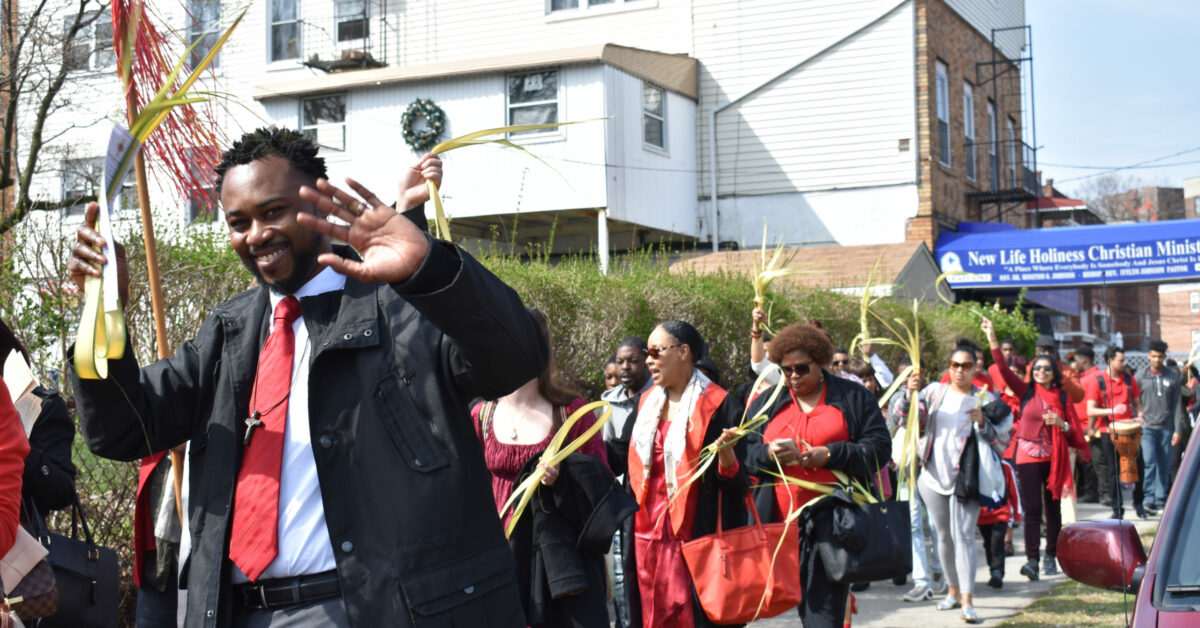Lifelong Disciples: The Congregation Training Ground
Throughout her book Your Parish is the Curriculum Diana Macalintal has emphasized that formation of the catechumens through the catechumenate happens in the life of the parish. In chapter 3 she discussed the ways that the assembly is involved in the rites of the catechumenate. In chapters 4 and 5 she turns toward the “The Curriculum for Making Disciples” and how “Parish Life is the Syllabus.” If it hasn’t been clear, it is now apparent that the catechumenate is focused on creating lifelong disciples, people who live by faith and show forth the fruits of faith. And the best way to learn to live that life is by watching, hearing, and doing that life with the congregation as it lives it. That’s why apprenticeship is the primary model for formation in the catechumenate. It is an apprenticeship with Jesus through his body, the church. The congregation is the training ground for new disciples, disciples making disciples. The catechumenate is not only about knowledge of the faith, but also about the living of that faith. It trains disciples in the Christian life.
In order to learn the church’s lifestyle (and each congregation has a unique way of living the faith, which is why it is important for everyone who wants to be a disciple in that congregation journey through the catechumenate), the Roman Catholic RCIA outlines four disciplines that are the curriculum: Word, Community, Worship, and Witness. I believe all four are central to a Lutheran conceptualization of the life of faith. The Word (Incarnate, proclaimed, and written) is at the center of the apprenticeship. It is the opportunity, as Macalintal puts it, “to meet Christ and his friends” (75). Catechumens (along with their sponsors) should gather at the divine service every Sunday to hear the Word, and also attend other opportunities to explore the Word such as Bible studies, devotional experiences, etc… This encounter with the Word entails breaking it open for the catechumens so that they see their daily lives through the Word. Macalintal provides the outline of such faith sharing through the Scriptures (75-77). Other forms of breaking open the Word include the African Bible study method, lectionary-based discernment, ritual-based discernment, and visualization discernment.
Encountering the Word takes place within the Community. Arthur Carl Piepkorn referred to this as the Life of God in the Life of the Parish (a seminal article in The Church: Selected Writings of Arthur Carl Piepkorn). Meeting Christians in the community is the second part of the curriculum. Thus it is incumbent that the parish be a hospitable place, welcoming inquirers and catechumens into its life together. Only by interacting with the members of the parish do the catechumens learn how to live in hope and how to forgive.
The third component of the curriculum is Worship, both the Sunday assembly and the other opportunities for worship in a parish throughout the week. Only through attending these do the catechumens learn to pray and worship. The dismissals in the Sunday gathering, after the service of the Word, are continuations of worship (not primarily instructional times). They allow members of the parish to lead the catechumens into breaking open the Word through faith-sharing that flows from the Word.
The last component of the curriculum is Witness. By joining the parish’s events and activities the catechumens learn how to witness, to proclaim the gospel in words and actions. Hopefully, they learn the priority of bearing witness to a life of faith and hope in Christ Jesus toward the poor and those at the edges of the assembly and society.
When a catechumenate immerses the catechumens in the parish’s life, then parish life becomes the syllabus for the catechumenate. It is a hands-on course as the catechumens do what Christians do day-in and day-out, week-in and week-out. Macalintal refers to this as Upside-Down catechumenate. In other words, it’s not the usual way that the catechumenate is done. The usual way entails trying to recruit volunteers to enact the activities of the RCIA which are all focused in the RCIA itself. In the Upside-Down catechumenate, catechumenate meetings are less frequent, but sponsors are immersing the catechumens in parish activities on a weekly basis. Through this the catechumens meet the assembly and learn how they believe and live the faith. Macaltinal examines bulletins from large and small Roman Catholic parishes to demonstrate the myriad of activities in a parish on a weekly basis, aligning with the four disciplines, in which catechumens might immerse themselves (even in small parishes).
If we want catechumens to become lifelong disciples, then they need to be incorporated into the faith community. The best way to do that is let the congregation’s life be their training ground in the faith.
